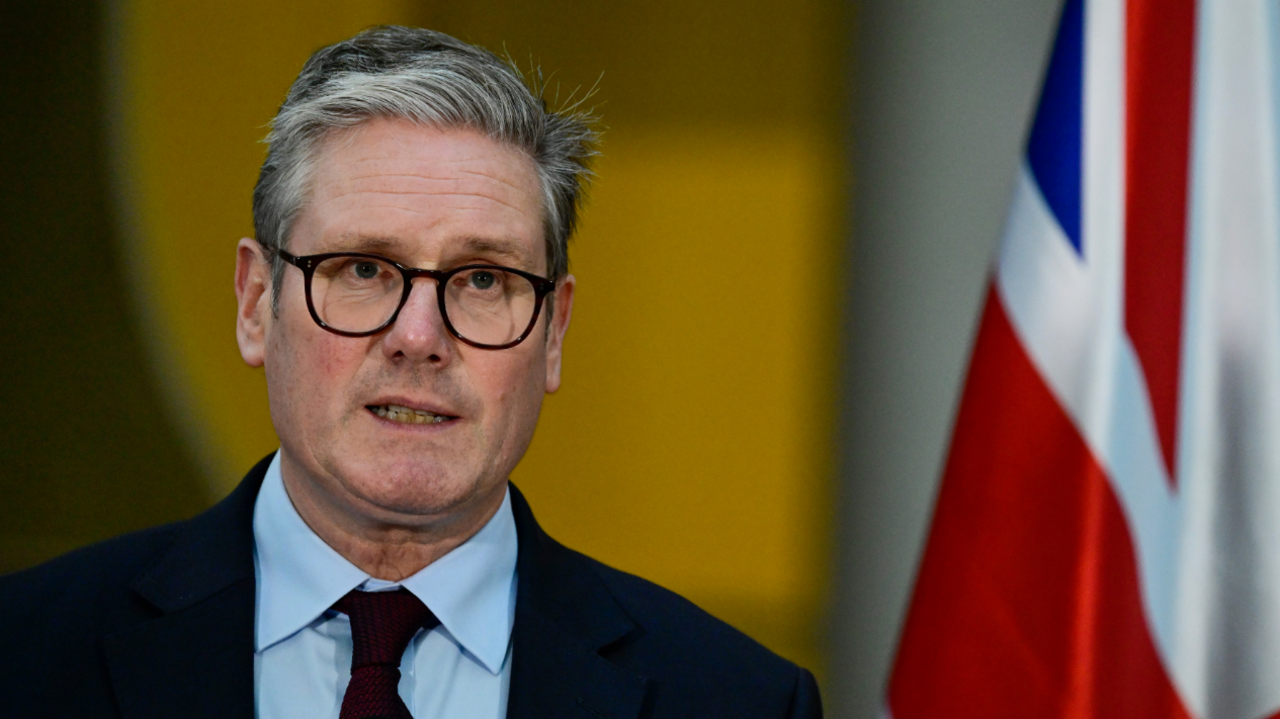Starmer rejects calls for slavery reparation talks

- Published
Sir Keir Starmer has said he wants to focus on the future of the Commonwealth, after ruling out compensation for the UK's historical role in the slave trade.
All three candidates to become the next head of the 56-nation organisation have called for reparations for countries that were affected by slavery.
A group of Caribbean nations has indicated it will push for the issue to be discussed at a summit of the bloc's leaders in Samoa this week.
But the UK prime minister said he wanted to address "current future-facing challenges" rather than "spend a lot of time on the past".
Sir Keir's government has ruled out making slavery reparations, continuing a longstanding British stance on the subject.
- Published21 August 2020
- Published26 April 2023
- Published19 October 2024
Downing Street has also said Sir Keir will not be apologising for Britain's role in the transatlantic slave trade, and reparations will not be on the summit agenda.
Speaking on his way to Samoa, the Labour leader said there was "no question" that slavery was "abhorrent".
But he added that he wanted to focus on the challenges that Commonwealth countries were "facing right now" rather than what "will end up being very, very long endless discussions about reparations on the past".
"This is about stance really, looking forward rather than looking backwards," he said, suggesting that Commonwealth countries themselves were more interested in talking about climate finance.
The call for reparations was also dismissed last year by the then-Conservative prime minister, Rishi Sunak, who said that "trying to unpick our history is not the right way forward".
'Reparatory justice'
The Atlantic slave trade saw millions of Africans enslaved and forced to work, especially on plantations in the Caribbean and the Americas, for centuries from around the year 1500.
The British government and the monarchy were prominent participants in the trade, alongside other European nations.
The UK also played a key role in ending the trade through Parliament's passage of a law to abolish slavery in 1833.
Reparations are broadly recognised as compensation for something that was deemed wrong or unfair, and can take many forms.
Caribbean leaders have argued for some financial recognition of the legacy of slavery. Estimates for compensation from campaigners and academics have ranged from £205 billion to nearly £19 trillion.
Caricom, an association of 15 Caribbean countries, has a dedicated reparations commission to make the case for "reparatory justice" to the region.
In 2014, it adopted a list of demands including for European governments to contribute towards health and education programmes, and write off some of their national debt.
In the run-up to this week's summit, five MPs from Sir Keir's Labour Party have been pressing for the issue of slavery reparations to be discussed.
One of them, Clapham and Brixton Hill MP Bell Ribeiro-Addy, has said it would be “wrong" not to approach the issue at the summit.